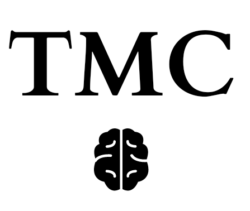Cognitive dissonance and suicide. #removethestigma
Cognitive dissonance and suicide; how it can kill.
The conflicted mind.
No one wants to spend their life with an endless internal battle going on in their head. Mental conflict is exhausting, unproductive and can lead to depression. Being your own enemy is such a sad waste of mental energy. Surely what we’re looking for is to be at one with ourselves, comfortable in our own skin, in short, in harmony. We want mental consistency.
In psychology, this state of internal conflict is known as ‘cognitive dissonance’. (dissonance is actually a musical term for lack of harmony or discordant notes.) It refers to the mental (and spiritual) discomfort or stress experienced by someone who is simultaneously holding two or more contradictory beliefs, ideas or values.
It’s when someone is doing something, over an extended period of time, that goes against what they actually believe or want.
If this struggle between action and beliefs (lying to yourself) is prolonged, the outcomes can be bad for mental and physical health. Indeed, it can lead to the conditions where a sufferer considers suicide as an escape from the mental strife.
Now, the factors prompting someone to end their own life are complex and should be studied on an individual basis, but there’s no doubt that living a lie, constantly at war with yourself and going against your true nature, are almost always involved.
Celebrity Suicide
We cannot know for sure what led to the recent tragic death of the TV presenter, Dale Winton, but close friends speak of his internal conflict – the battle between loving (and needing) fame, celebrity and recognition – and the very opposite – a desire for anonymity and closer harmony with his introspective side. All who worked with him speak of his sensitivity, kindness and thoughtfulness – aspects of a personality that will often find conflict with the brashness and shallowness of celebrity.
Fame can be dangerously addictive and can tear a person apart particularly if they ‘know in their hearts’ that the celebrity role is not their real persona – however much they love and crave that role.
In a wider context, men in general are increasingly finding themselves in conflict and disharmony with what society expects of them. From an early age, boys are expected to ‘man-up’, be brave, or to feel failure if, in later life, they do not provide for family and achieve success.
Falling short of the expected masculine image can lead to the experience of cognitive dissonance. ‘I know I should act like a man, but this is not how I feel or believe’. That dissonance, over many years, can lead to crisis – often triggered by unemployment or divorce. Failure at work (being sacked, bankruptcy) or failure in a relationship or marriage – particularly at a stage in life (often mid-life) when serious doubts and soul-searching are going on – can lead to breakdown.
Cognitive dissonance and suicide
Men in the UK aged 20 to 49 are more likely to die from suicide than any other cause of death. Suicide rates in men aged between 45 and 59 are rising significantly and are at their highest in 30 years.
Certainly, a contributory element in this ‘gender paradox’ is the changing perception of masculinity. Men are feeling they’re not living up to the changing role in society while still hanging on to the traditional role – and this conflict is being internalised in the form of cognitive dissonance, with all its dangers.
Mental well-being depends on facing up to these internal conflicts and the first step is recognising they’re there. Denial will only worsen the disharmony.
It’s often the case that a person will not actually realise there is an internal conflict – they have been so good at lying to themselves or they have come up with such clever rationalisations for their actions that they have carried on. (‘Oh yes, I know smoking is bad for me, but it helps me lose weight’.)
In cases like this where the dissonance is unrecognised, unnoticed or flatly denied, intervention from a therapist is needed. The therapist can listen to the client’s description of their behaviour and associated thoughts and gradually shine a light on the inconsistencies and contradictions.
This involves openness, honesty, courageous self-examination and a willingness to reconcile the conflicting actions and beliefs. It is very much about being true to yourself, by discovering (on a daily basis) who that ‘self’ really is and living life in harmony with what you find.

